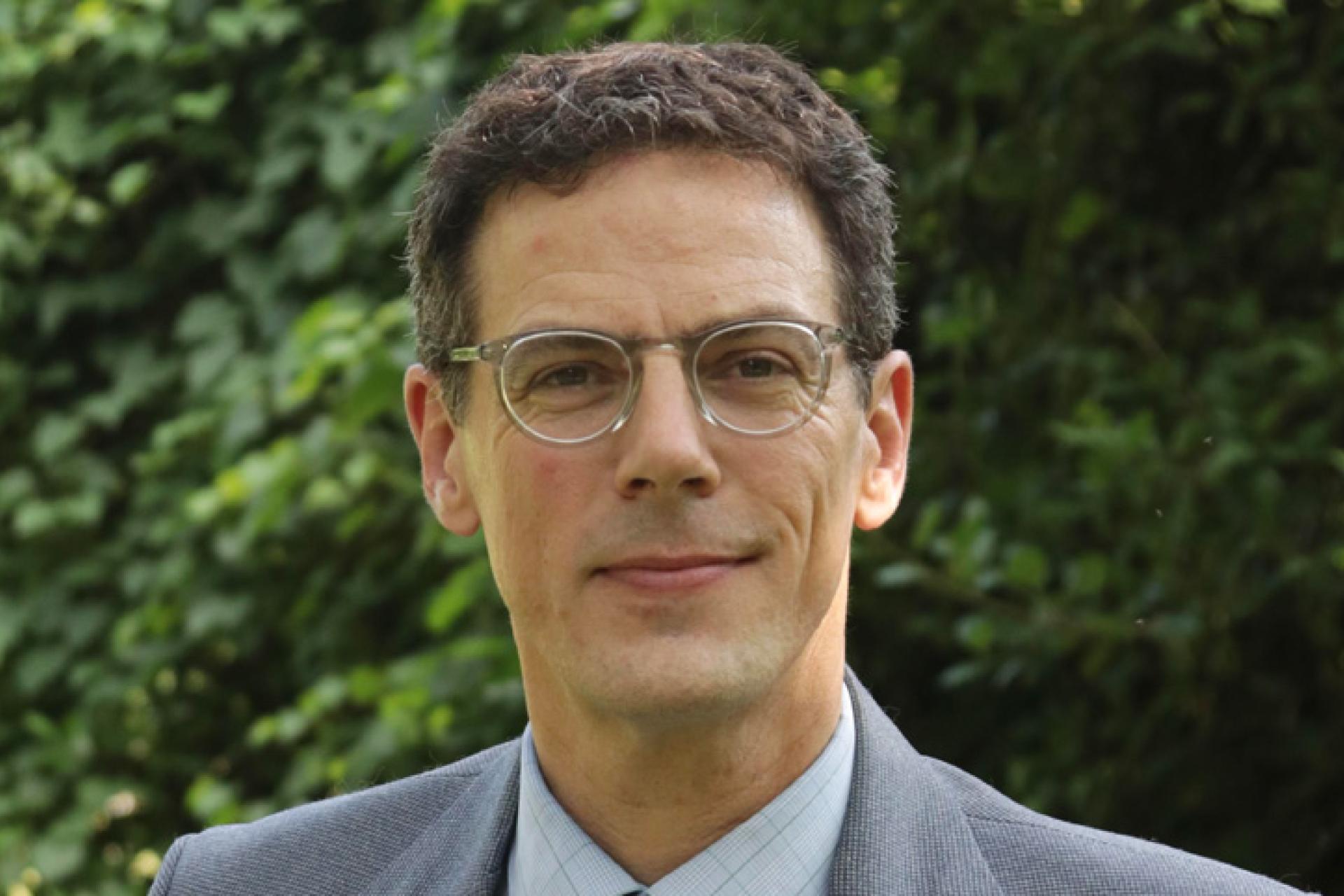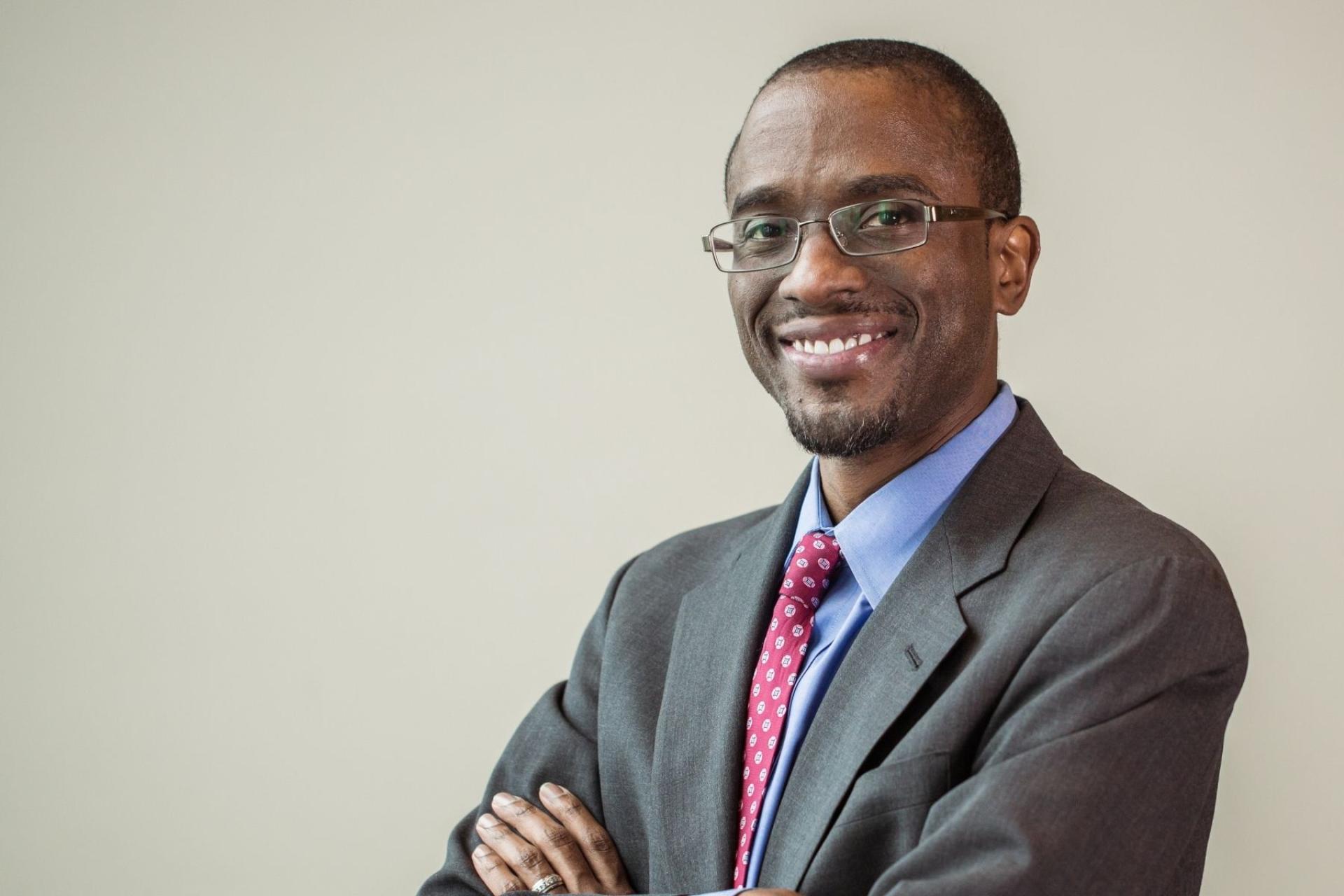
Adam Schmucker Builds Bridges Through Language
Jun. 18, 2024
Adam Schmucker has always been interested in language and the world that exists outside our individual bubbles. He minored in Spanish during his undergraduate studies in elementary education and moved to Colorado right after graduation. “Happily, thankfully,” he says, “I ended up in a district with a pretty significant population of families from northern Mexico, kids and families who spoke Spanish.”
The district where Schmucker began his career was working to support these students and speaking Spanish proved an important way to create common ground. “So, I started speaking Spanish—bumbling through it—looking to connect with kids, understand families, and making sure they were supported and had full access as students and community members,” he says.
As his work in the Colorado school district continued, Schmucker had opportunities to teach in the English as a Second Language (ESL) program and later taught bilingual science and math classes. Schmucker was also part of a program that set up a dual language elementary school. And his work with communities and community support organizations included work with Colorado Community Partnerships and the Vail Valley Youth Foundation. Through these partnerships, he became the founding director of an after-school academic soccer program for underserved students and families in the largely Hispanic community. Each experience added to his emerging understanding of how school leadership can support bilingual students and their families.
Schmucker returned to Pennsylvania, accepting a position as principal of Trumbauersville Elementary School. “While there are fewer emergent bilingual students and families here than there were in Colorado, Spanish is still spoken,” he said. Speaking Spanish has continued to help him build bridges with kids, their families and communities.
When he decided to pursue an educational leadership degree, Schmucker chose Lehigh. “There are a lot of programs that you can go to if you want three letters behind your last name and you want to complete a doctoral program quickly,” he says. “And then there's programs that you can enroll in if you are looking for relevant conversations that allow you to think deeply about your practice, the work, education, and, by the way, you also end up with three letters behind your name.”
As part of his doctoral program, Schmucker is conducting research about the influence of school leadership on bilingual education. His multi-site, qualitative case study is taking place at three elementary schools in eastern Pennsylvania, conducting document analysis, semi-structured interviews and observational field observation. Schmucker is looking for patterns that might help him understand how school leaders position the experience of emergent bilinguals. “How are leaders thinking about this population in terms of language orientations, language as a problem, a right, a resource, and more recently as a struggle–all phrases and orientations out there in the literature?” he adds.
Schmucker is also looking at language in the context of contemporary ideas about the purposes of school such as social mobility, social efficiency and democratic equality.
“Education is complex,” he continues. “And for a long time, there have been some concerns—related to life experiences, language abilities, heritage cultures—that may have been outside of the typical norm of the dominant culture in education.” Schmucker’s research acknowledges these educational complexities and how leaders can address the needs of underrepresented groups, such as emergent bilinguals.
“I think there is an understanding that we need to look at these issues,” he says. “Especially as the general population of public schools becomes more diverse.”
After completing his Educational Leadership degree and adding the “Ed.D.” after his name, Schmucker has no plans to leave his position at Trumbauersville Elementary. “I appreciate the continued exercise of thinking and learning and the world of academic thought.” During his graduate work, he has also served as a supporting principal for a year-long principal internship program with the Pennsylvania Department of Education. He hopes to continue supporting other principals and applying research in the classroom—especially as it relates to emergent bilinguals and experiences in schools.
“There are a lot of conversations about appropriately supporting students who are emergent bilinguals in schools, but there's not a lot of clear direction,” Schmucker concludes. “We, in school leadership positions, need to pay attention and understand the responsibility we have to positively influence kids’ school experiences and address the complexities of education in a way that's equitable.”


